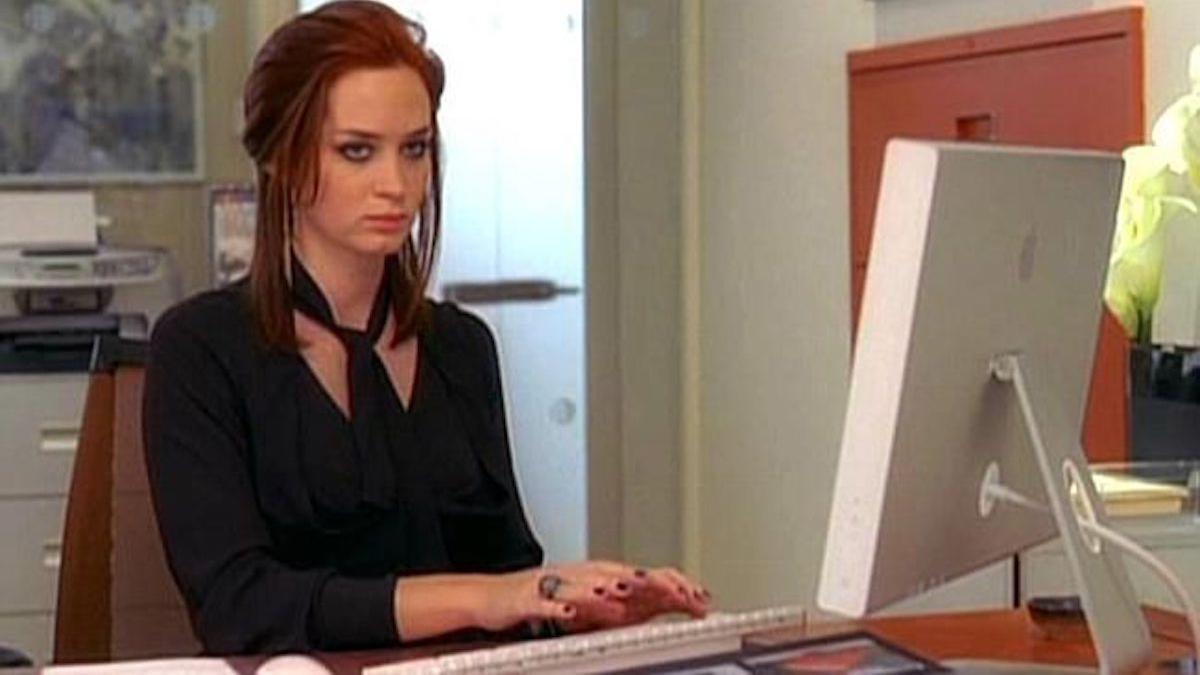
There’s a fine line between hating your job with a fire you feel all the way in your soul and being in a blue headspace where you hate just about everything. When you think your job is the problem, it can be tempting to throw caution to the wind and just quit your job.
But maybe a serious case of the New Year’s blues is making you feel average more generally, so marching into your boss’s office to throw down your resignation letter is probs not the best idea.
There are a few things to consider. Ahead, we break it down for you.
Make a pros and cons list

This might sound old school, but there’s a reason the ol’ pros and cons list has been around for so long. Getting all of your thoughts and feelings out on paper (or in the Notes section of your phone) could help you to either see reason or realise just how bad things have gotten at work. Either way, looking at the benefits versus the disadvantages of your current situation could help you make a clear decision about your future.
Ask your best mates if they think you hate your job

They were there for you when you were excited to get the job and they’re still there for you now that you think you’re ready to leave. So, ask them what they think and see whether they think you really do hate your job, or if you’re feeling blue for another reason. Getting an outsider’s perspective, from someone who cares for you but isn’t as emotionally tied to the situation, could help you figure out if it’s time to cut-and-run.
Do you hate your job . . . or are you nervous to go back to the office?
Last year was a weird one (to say the least) and it’s also meant that many of us were working from home more and interacting with people IRL less than we did in a pre-2020 world. Being nervous about upping your human interaction could be making you feel like you’d rather just leave your job.

Or maybe it’s not human interaction generally, but rather, interacting with specific people you work with and being nervous about letting that toxic energy back into your life. If it’s the former, it might be a case of the blues and if it’s the latter, you probably really do hate your job.
Are you taking professional feedback personally?
It’s okay if you are. When people at work say “it’s just business”, I just about pull a muscle with rolling my eyes so hard. When you spend more days in the office than not, it’s normal to feel like your work is personal — because it is. That said, I always try to remember that professional feedback (genuinely constructive feedback, that is) really isn’t personal.

Maybe you slipped up at work, have been late a few times, or are simply in a role where growth and development is a daily slog. No matter the reason, it might help to think about whether you’re attaching too much emotion to everyday feedback. The answer may help you figure out whether it’s contributing to your New Year’s blues or not. And heck, maybe your boss’s delivery sucks, and you can’t take it anymore — that’s also valid IMO.
Do you dread work from the moment your head hits the pillow?

When you start losing sleep because you’re already dreading the next workday, it’s probably time to think about moving on. While work won’t always be fun, it also shouldn’t make you frequently miserable outside work hours or, like we said, lose sleep. And there’s a difference between having a case of the Sunday scaries once a week and feeling like every moment you’re not at work is taken up by dreading work.
Get your financial ducks in a row
This might not sound like a way to figure out whether you hate your job or are just feeling a bit blue, but stay with me. Personally, when I get into this headspace (read: miserable) it’s often because I’m feeling a loss of control — control of my work, my surroundings, my time, whatever. Feeling like I’ve lost control can make me feel like I need to escape, and if I’m not loving my job, you know I’m about to hit the eject button.

By facing the music and checking out your finances — I’m talking savings, credit cards and, yes, even your superannuation — to get an accurate idea of how you’re really doing can be enough to right yourself.
When it comes to super, you should make sure you know where your money is and if it’s in multiple accounts consider if consolidating into one account would be a good choice for you — this could save you money on fees. But before consolidating your super, check if you’ll lose any benefits like your insurance cover if you close one of your accounts.
While a new employer might just hand you a new account when you start, shopping around for a better option never hurts! CareSuper, for example, is one of Australia’s top-performing funds, with consistent performance over 20 years.*
But do your homework to choose a super fund that matches your situation, as well as checking fees, costs and investment risk profiles.
Sorting your finances may help you realise that you could survive a few months without working (if you decide to leave your job), or perhaps you look at your debts and think it’d be better to hang in there until you’re in a better financial situation. Either way, you’ve taken back control of a super important part of your life and call me a control freak, but that always makes me feel better.



